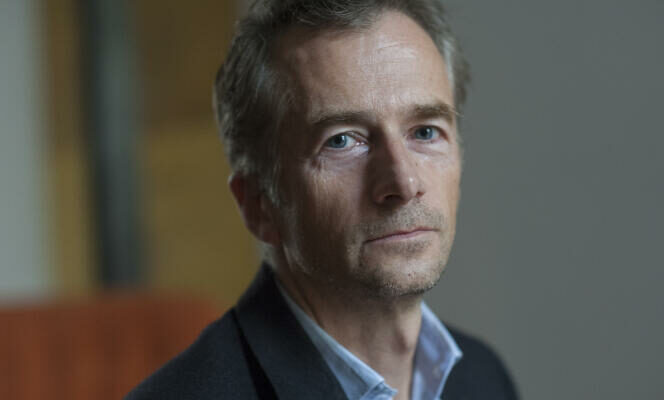It is with amazement and dejection that the world of French economics learned this Sunday evening, December 17, of the death at the age of 57 of Philippe Martin, one of its most active and influential representatives, following a crisis cardiac. Former president of the Economic Analysis Council, dean of the Sciences Po school of public affairs, he was the economic advisor to Minister Macron before participating in the development of his program for the presidential election. “I am deeply saddened by the sudden disappearance of Philippe Martin, reacted on X the Minister of the Economy, Bruno Le Maire. A brilliant researcher, open and wise mind, he will have enlightened economic policy. »
His long career, which spanned the United States, university and political circles, began and ended at Sciences Po. It was in 1987 that the young student received his diploma from the school on rue Saint- Guillaume. The partnership with Georgetown University in Washington allowed him to cross the Atlantic and stay there for four years, the time to obtain a doctorate (PhD) in economics. Back in Europe, he taught for a time in Geneva before finding a position at the Center for Prospective Studies and International Information. “When I recruited him, I was immediately struck by his analytical clarity. He had a great ability to simplify problems,” remembers its president at the time, Jean Pisani-Ferry. An ease in teaching which will allow him to take on a series of teaching positions: Les Ponts, Polytechnique, the University of Lille, then Paris.
This will not prevent him from wanting to refine his skills in macroeconomics and finance by becoming an economist at the Federal Reserve of New York. He did well. A year later, in 2002, he received the prize for best young economist awarded by The world and the circle of economists, jointly with Thomas Piketty. This recognition allowed him, among other things, to return from America to teach at the Sorbonne and at the Paris School of Economics.
“He showed that he was an excellent researcher, assures Philippe Aghion, professor at the Collège de France. He has worked extensively on the links between trade and conflict. » With his colleagues Thierry Mayer and Mathias Thoenig, he studied the economic cost of wars in terms of reduced trade between belligerents, showing that when economic ties are strong, the propensities to wage war are reduced. But globalization, by multiplying trading partners, has paradoxically reduced the economic cost of conflict, making them more likely. This study, published in Cepremap in 2006, has regained currency thanks to the Ukrainian conflict.
You have 60% of this article left to read. The rest is reserved for subscribers.
